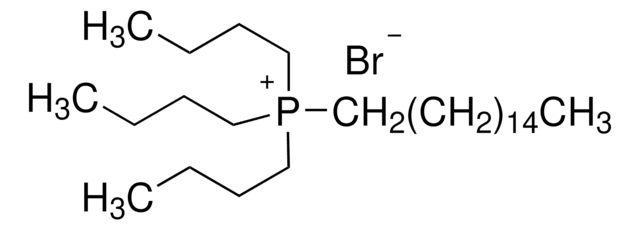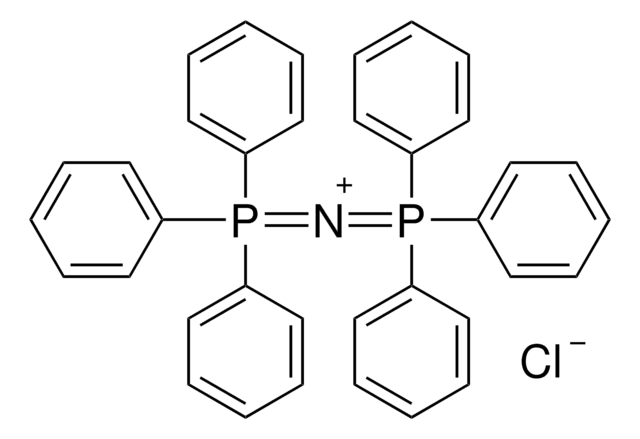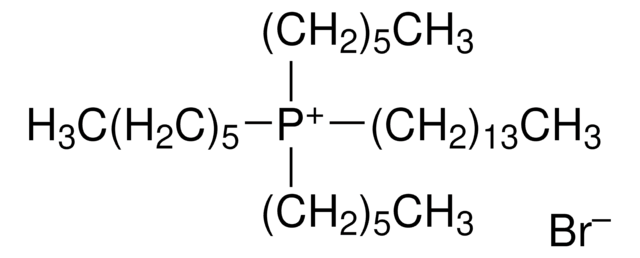218782
Tetraphenylphosphonium bromide
97%
Synonym(s):
Tetraphenylphosphorus bromide
About This Item
Recommended Products
Quality Level
Assay
97%
form
solid
mp
295-300 °C (lit.)
SMILES string
[Br-].c1ccc(cc1)[P+](c2ccccc2)(c3ccccc3)c4ccccc4
InChI
1S/C24H20P.BrH/c1-5-13-21(14-6-1)25(22-15-7-2-8-16-22,23-17-9-3-10-18-23)24-19-11-4-12-20-24;/h1-20H;1H/q+1;/p-1
InChI key
BRKFQVAOMSWFDU-UHFFFAOYSA-M
Looking for similar products? Visit Product Comparison Guide
Related Categories
Application
Storage Class Code
11 - Combustible Solids
WGK
WGK 3
Personal Protective Equipment
Certificates of Analysis (COA)
Search for Certificates of Analysis (COA) by entering the products Lot/Batch Number. Lot and Batch Numbers can be found on a product’s label following the words ‘Lot’ or ‘Batch’.
Already Own This Product?
Find documentation for the products that you have recently purchased in the Document Library.
Our team of scientists has experience in all areas of research including Life Science, Material Science, Chemical Synthesis, Chromatography, Analytical and many others.
Contact Technical Service







